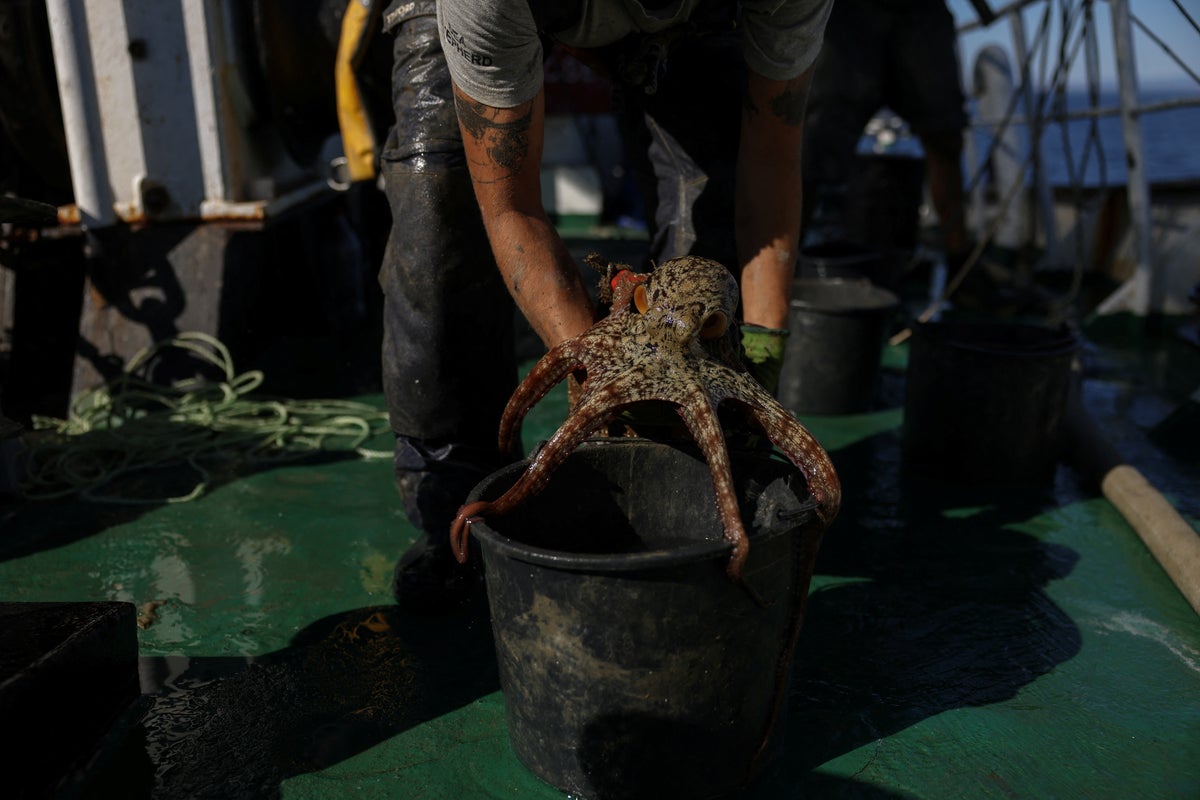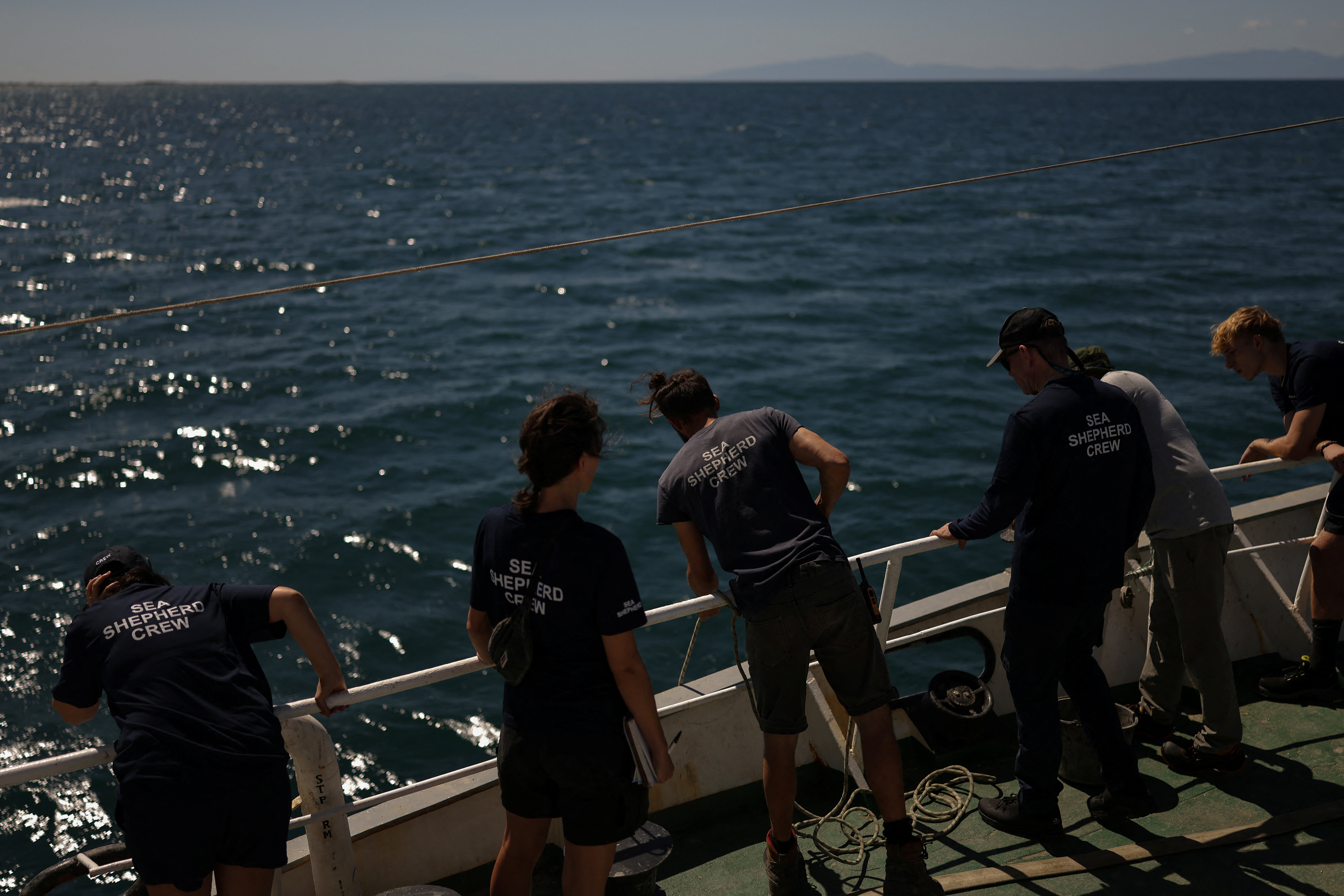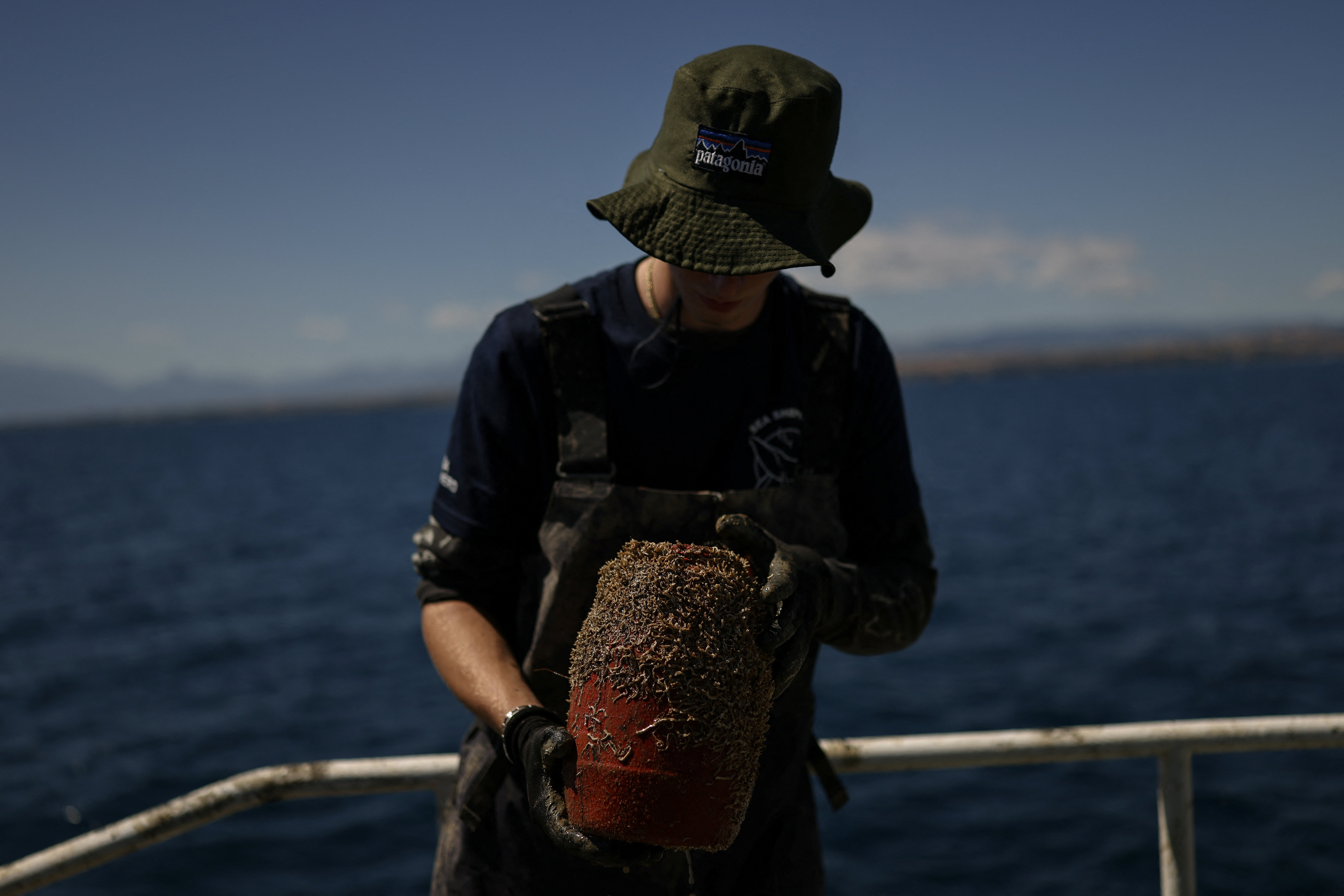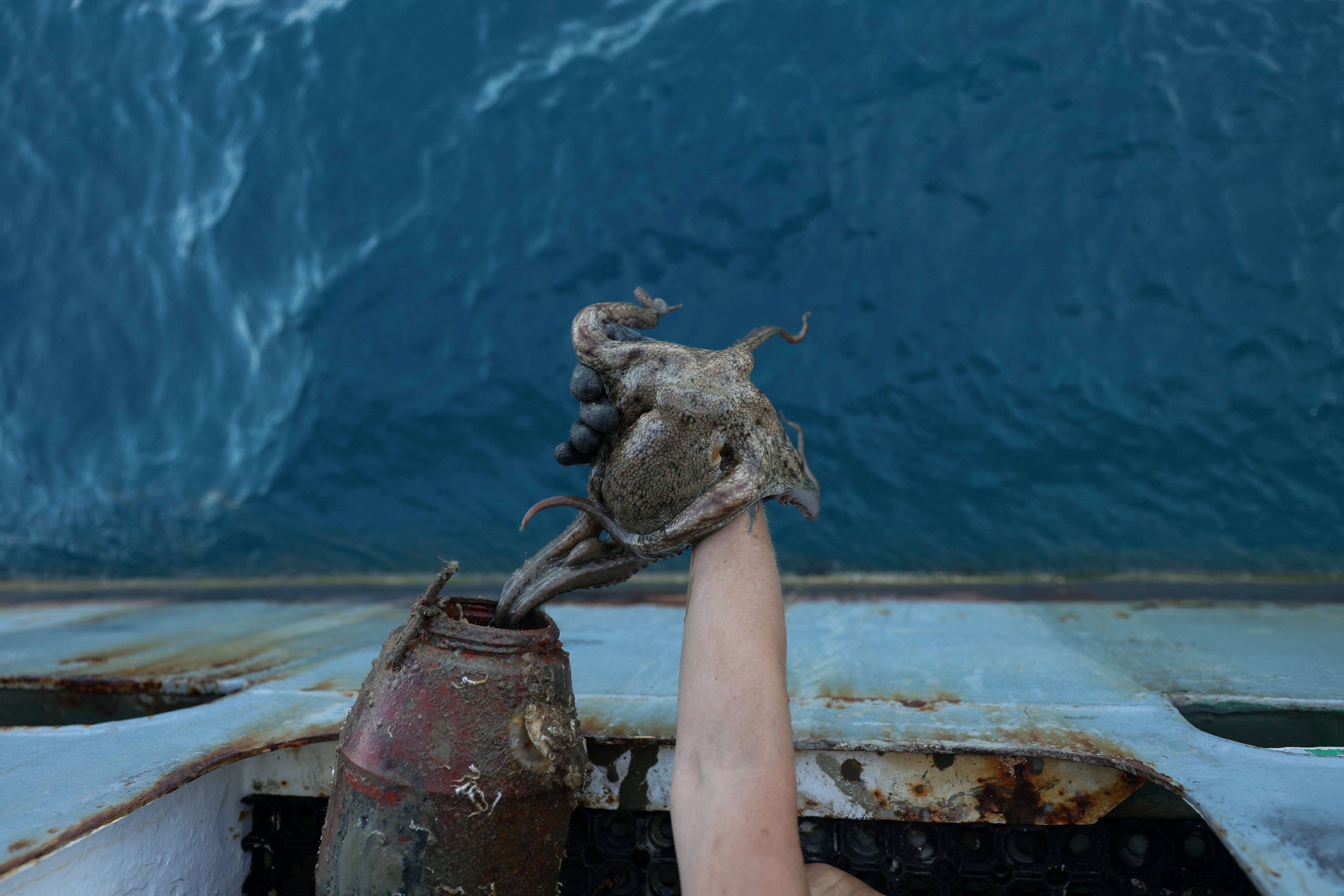
A dramatic cry of “Octopus!” echoes across the deck of the Sea Eagle vessel as its crew hauls a plastic pot from the seabed off northern Greece, revealing a squirming cephalopod.
The creature, moments earlier ensnared in an illegal trap, stretches its tentacles before being gently returned to the waters of the Aegean Sea.
Since early July, volunteers from the campaign group Sea Shepherd, supported by regional authorities, have removed thousands of illegal traps, liberating more than 1,500 octopuses.
Their mission aims to combat illegal overfishing, which not only imperils octopus populations but also contributes indirectly to marine pollution in Greek waters.
Despite these successes, campaigners and authorities estimate a staggering half a million octopus traps remain on the seabed in northern Greece.
That is testament to the escalating demand for octopus among European diners.

“The numbers are absolutely mind-blowing," said Sea Shepherd’s CEO and captain, Alex Cornelissen, during a recent day on the water, referring to the number of traps hauled.
“If you want to preserve the octopus, then you need to do something about it.”
He said the problem extends across Europe, in Italy, Spain and Portugal.
It comes as the global trade in octopus has ballooned over the last decade and as climate change alters reproductive habits.
Greece, where grilled octopus and ouzo are staples of the country’s shoreside fish restaurants, appears to be one of the worst-hit areas, Capt Cornelissen said.

Hunters lure their prey by placing the pots, weighted with a stone, on the seabed.
The barrel-shaped traps resemble the dens and rock holes where octopuses typically like to shelter and tend their eggs. They are tied to long lines of rope attached to small buoys.
The fishing method is banned or restricted during the summer breeding season in northern Greece.
Instead of retrieving the pots at the end of June and redeploying them in October, some fishermen have only been adding to the lines for years.
The crew of the Sea Eagle have recovered 288km (179 miles) of line.

The pots should be marked with the owner's name, but most are crusty and untagged.
The plastic pots are the most abundant litter item removed from the Thracian Sea, according to a recent study by environmental organisation iSea.
Some of the plastic pots disintegrate when pulled out, said Valia Stefanoudaki, Sea Shepherd’s campaigns director in Greece.
“We want to sit by the sea to enjoy our ouzo. But the fact that the sea is emptying does not even cross our mind,” said Ms Stefanoudaki.
“It’s a chain, from the tiniest [creature] in the sea to the biggest. When the chain breaks, it’s over.”







